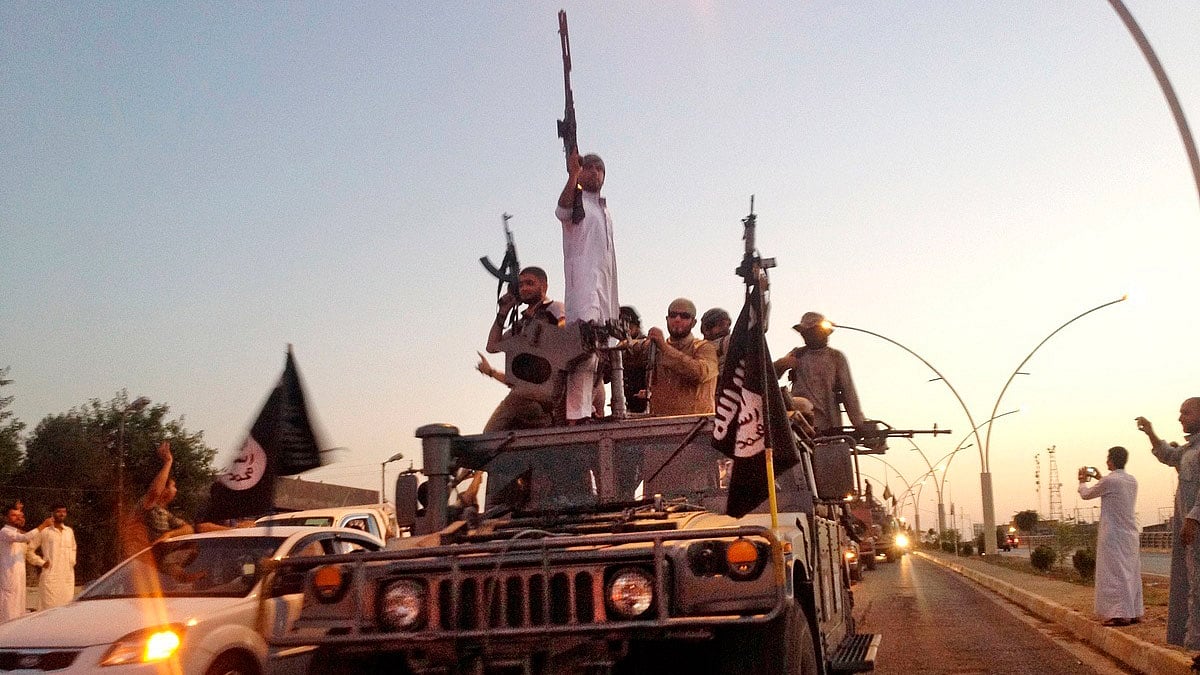IS Foreign Soldiers Fight “Strange, Terrifying” Battle, Ruin Mosul
Unlike Iraqi militants who can blend as civilians & maybe slip past security forces, foreign fighters have no escape

advertisement
The families cowered in basements, huddling in the dark as war raged overhead between Iraqi forces and ISIS militants fighting for control of the streets of Mosul.
Above ground, soldiers from Iraq's Rapid Response division move from house to house through the same openings Islamic State militants smashed through the walls in preparation to defend their last remaining stronghold in the city's west.
The passageway led them through living rooms and gardens, into a kitchen with a pot of lentil soup on the counter – the scenes of domesticity highlighting the chaos of war that is intensifying as Iraqi forces advance.
"It's strange and terrifying," said a young woman who was barely visible in the gloom of a basement under her house in the Josaq district, where she went into hiding after giving birth to a baby girl 72 days ago. "I rarely go upstairs."
Now they are encountering tougher resistance as they push into residential districts where as many as 750,000 civilians are essentially trapped.
If they defeat ISIS in Mosul, that would crush the Iraq wing of the caliphate its leader Abu Bakr al-Baghdadi declared in 2014 over parts of Iraq and neighboring Syria.
Foreign Fighters Battle to the End
The Iraqi soldiers climbed through a hole in the wall of a garden strewn with ripe oranges and shattered glass, and emerged to find an ISIS fighter lying flat on his back where he had been killed by Iraqi forces.
Lt Colonel Abdel Amir al-Mohammadawi went through the dead man's pockets after making sure he was not wearing a suicide belt, and pulled out a small address book containing telephone numbers of other fighters, and a contact for "Islamic Police".
Unlike Iraqi militants who can blend in with civilians and possibly slip through the net of security forces, foreign fighters have no escape and will therefore fight to the end. Mohammadawi said: "They don't flee like the locals".
There are noticeably more foreign militants in the western half of the city than the east, which Iraqi forces cleared one month ago after 100 days of fighting, Mohammadawi added.
After losing the east, ISIS militants prepared for battle in the west, knocking holes through the walls and expelling residents whose homes offered a vantage from which to fire at advancing Iraqi forces.
"Search upstairs!," Mohammadawi ordered, sending two men up the stairs, gun barrels first, to make sure no militants were hiding there.
Also found were paper slips granting ISIS members leave for short periods of no longer than a day, which one officer said indicated they had no time or manpower to spare.
Civilians Hide in Basements
The densely populated terrain is already proving a challenge. Mohammadawi said Rapid Response forces had been forced to pause their advance in Josaq on Sunday because five ISIS snipers were hiding among civilians.
A tactical unit had then killed the militants in an overnight raid, Mohammadawi said, clearing the way for Rapid Response forces to reach the first of five bridges that straddle the River Tigris bisecting Mosul.
The women described how the militants had set the upper floors of their homes ablaze to create a smokescreen against coalition aircraft.
Mahmoud, who was amongst the group, escaped after secretly contacting the commander in the area, keeping his phone on silent so the ring tone would not give him away to ISIS militants. But his brother stayed behind.
"Brother, get out," Mahmoud said urgently over the phone to his brother. "It's better. Get your stuff together. Protect your children. No inch is safe."
(At The Quint, we question everything. Play an active role in shaping our journalism by becoming a member today.)